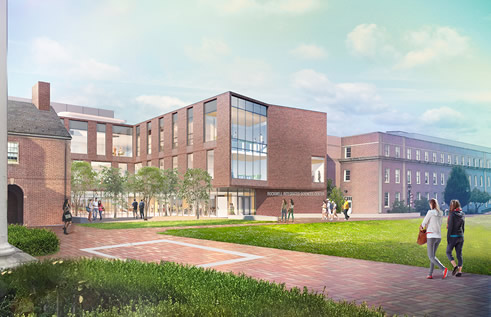Integrated Sciences Center Breaks Ground at Lafayette College
Lafayette College in Easton, PA, recently unveiled plans for their new Rockwell Integrated Sciences Center. The new building will house students pursuing various scientific disciplines, including biology, computer science, neuroscience, and other sciences.

The new innovative space, the largest capital project in the school’s history, will focus on creating spaces that can adapt to new technology, and bring students from different disciplines together. It will also include the college’s IDEAL Center for Innovation and Entrepreneurship.
The building design was handled by Boston firm Payette and The Harman Group, and the project is targeting LEED Gold certification with a projected completion date in the fall of 2019.